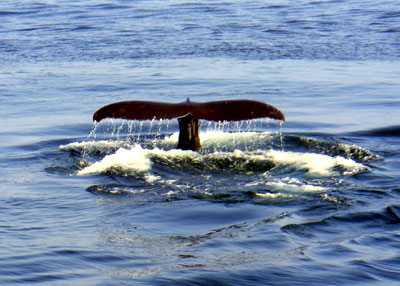All Nonfiction
- Bullying
- Books
- Academic
- Author Interviews
- Celebrity interviews
- College Articles
- College Essays
- Educator of the Year
- Heroes
- Interviews
- Memoir
- Personal Experience
- Sports
- Travel & Culture
All Opinions
- Bullying
- Current Events / Politics
- Discrimination
- Drugs / Alcohol / Smoking
- Entertainment / Celebrities
- Environment
- Love / Relationships
- Movies / Music / TV
- Pop Culture / Trends
- School / College
- Social Issues / Civics
- Spirituality / Religion
- Sports / Hobbies
All Hot Topics
- Bullying
- Community Service
- Environment
- Health
- Letters to the Editor
- Pride & Prejudice
- What Matters
- Back
Summer Guide
- Program Links
- Program Reviews
- Back
College Guide
- College Links
- College Reviews
- College Essays
- College Articles
- Back
Animal Rights Deserve the Same Accountability as Humans
Family trips to SeaWorld hold a place in the memories of a great number of Americans. But what is often overlooked when looking back at rip-roaring times in the splash zone is the corruption and mistreatment that exists within corporations like SeaWorld.
In an attempt to shed light on the issues that exist within the animal exhibition industry, Gabriela Cowperthwaite directed the 2013 film, “Blackfish.” As a result of the media attention brought to the industry’s flaws, legal action was pursued in the state of California. The Orca Protection Act was enacted in 2016 to prevent orca negligence as modeled by orcas in captivity.
The Orca Protection Act is a step in the right direction for building animal rights, however, it is too limited a law to create its intended impact. The severity of the orcas’ condition is not met with equal punishment. Neither is the act sufficient in addressing all of the issues highlighted in “Blackfish.”
Cowperthwaite’s film provides viewers with an inside look at SeaWorld’s orca shows and exposes SeaWorld’s origins. The film highlights the illegal, unethical hunting done to capture and breed SeaWorld’s orcas. Baby orcas were separated from their families--referred to as pods--and integrated into other pods, which researchers have proven to be detrimental.
The orcas, ranging from 20-23 feet in length, were then transferred to 20 by 30-foot metal pools. These living conditions provided by SeaWorld resulted in a number of physical and psychological side effects. Two-thirds of the orcas’ lifetime--which would be cut short by over 60 percent--was spent in their makeshift habitat.
As a result of being confined to such a small space, some orcas developed collapsed dorsal fins--an orca’s outward expression that it does not have an adequate swimming space or diet. Instead of addressing the animals’ complications, the SeaWorld corporation provided false information to its customers regarding orcas in their natural state. SeaWorld trained its employees to tell customers that collapsed dorsal fins were a rare natural occurrence in orcas.
Nowhere in the Orca Protection Act does it address the size of captive orca pools, nor does it provide adequate punishment for places like SeaWorld--a money-hungry corporation with no intentions of providing proper marine education to the public, or providing adequate care for the animals within their facilities. The act adequately states the illegalities of orca hunting, but it lacks advocacy for already captive orcas.
The Orca Protection Act states it is illegal to hold orcas captive for reasons such as breeding, performance, and entertainment. Noncompliance with the act results in a misdemeanor and a fine of $100,000 maximum. For a multi-billion dollar company like SeaWorld, a maximum fee of $100,000 is close to nothing, therefore they are less likely to comply. And if SeaWorld is treating their orcas this way, how are they treating their other animals? The Orca Protection Act is only applicable to orca whales and does not apply to captive animals held for rehabilitation or “education purposes.”
According to the People for the Ethical Treatment of Animals (PETA), the enforcement of animal rights laws overall are not taken seriously in the U.S. There are only just over 100 U.S. Department of Agriculture inspectors responsible for the inspection of over 10,000 facilities each year. Because of deficient enforcement, violators of animal rights laws are rarely punished.
There are zoos, marine parks, and aquariums like SeaWorld all over the country with profit-driven values and minimal regard to the well-being of animals on their facilities. The best way to stop these corporations is to bring media attention to these issues.
The film “Blackfish” itself depleted SeaWorld’s stock by 60% just a year after its release date. This is only proof that the public has the power to change the ethics and mindsets of animal entertainment industries.
Animals are known to have similar emotional intelligence and cognitive abilities to humans, so why do we shy away from sympathizing with them? If zoos were filled with humans in cages for the world to see, there would be immediate uproar. This is not any different.
If it is wrong to do to a human, it is wrong to do to an animal.

Similar Articles
JOIN THE DISCUSSION
This article has 0 comments.

I am a 2 year vegan and passionate about animal rights.